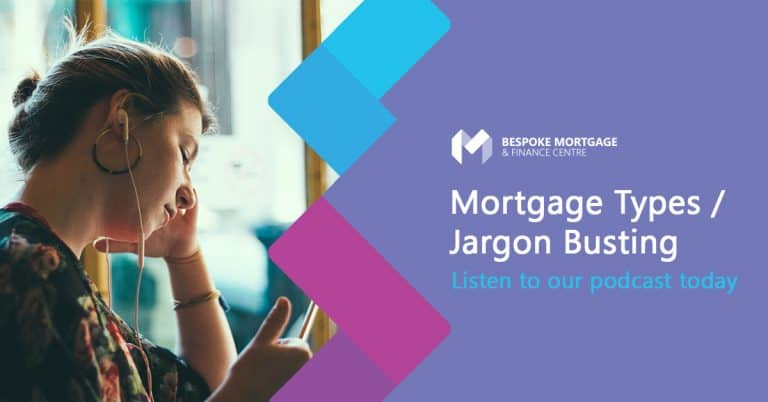Features of Guarantor / Family Assist Mortgages
What is a Family Assisted Mortgage?
A guarantor mortgage is a mortgage product that allows a family member, usually parent or grandparent, to support your mortgage application, so that Mortgage Lenders are confident enough to accept your application. This is because the guarantor has agreed to share some of the risk involved in high-value lending. This option can help those on low incomes, with poor credit scores or who are struggling to save a substantial deposit, particularly First Time Buyers, to get onto the property ladder or borrow more towards the cost of a new home. In some cases it’s possible to borrow 100% of the cost of your new home, however, you should be aware that your family member acting as the guarantor is liable for the mortgage, should you default on your mortgage payments.What types of guarantor mortgages are there?
There are two main ways that guarantors can financially support your mortgage application. Those with poor credit or who wish to borrow 100% will most likely benefit from using these traditional guarantor options such as savings deposit or collateral charge mortgages.Savings Deposit
This option works similarly to an offset mortgage. It requires the guarantor to deposit savings into an account with the Mortgage Lender to be held for a set amount of years or until a specified percentage of the loan is repaid. Lenders will usually pay interest on these savings, however.Collateral Charge
With this option, the guarantor offers their physical assets, usually their own home, as collateral for the borrowing. If your mortgage defaults, it’s possible that they could lose their home to enable the Mortgage Lender to recover their losses.Is there a lower risk option?
Those who are unable to get a mortgage or are not able to borrow as much as they need to due to low income, may find joint mortgage options more helpful. Joint mortgages share the burden of affordability between the income of the applicant and a parent or family member with a more substantial income. Whilst this is a lower risk option as no assets or capital are at risk, the joint applicant is jointly responsible for paying the monthly repayments. It would also class as a second home for them, so this results in additional Stamp Duty liability.Joint Borrower Sole Proprietor
A Joint Borrower Sole Proprietor mortgage (Or JBSP) allows the joint applicant’s income to be considered alongside the main mortgage applicant, without them appearing on the deeds to the property. This means that they will not be liable for the mortgage or additional Stamp Duty. This is considerably less risky for a parent or guardian that wants to help you get a mortgage. With this type of mortgage, a deposit is often required and as it is still considered a joint mortgage application, the parent’s age can be problematic, if they are older than pension age.Who can be a Guarantor?
Most Mortgage Lenders will only accept immediate family as a guarantor, such as parents and grandparents, although some will consider friends. In order to act as a guarantor for you, the individual will need to:- Have substantial savings or a high income
- Own their own property outright or have substantial equity
- Have a strong credit score
- Must have sought independent legal advice
What is a Guarantor Liability if you can’t pay your mortgage?
If you’re unable to keep up your mortgage repayments and your home is repossessed, your guarantor will share responsibility for any financial shortfall the lender experiences when they resell the property. Depending on the type of mortgage deal taken, this could either mean that the guarantor’s deposited savings are used to cover this cost or if their property has been used as collateral, the lender can forcibly sell their home to recover their losses. It’s possible to find some mortgage offers that only hold guarantors liable for a percentage of the property value in the event that your home is repossessed.How much can I borrow with a guarantor loan?
It’s possible to borrow up to 100% of the cost of the property with some guarantor mortgages, although the loan amount you can achieve will depend on your income and creditworthiness.How can Bespoke Mortgages Help?
Guarantor mortgages carry significant risk and can be complicated to arrange, so it’s always advisable to use Mortgage Brokers like ourselves to help you with your application. We have access to a wide variety of guarantor and joint mortgage options across both the high street and mortgage markets. This way we can help ensure that you find the most competitive and least risky option for you and your family.YOUR PROPERTY MAY BE REPOSSESSED IF YOU DO NOT KEEP UP REPAYMENTS ON YOUR MORTGAGE
Remortgaging
If your current mortgage deal or term is coming to an end, make sure you explore your options, because your existing lender may no longer

Mortgage Types/Jargon Busting
Mortgage Types | Bespoke Mortgage & Finance Centre What types of mortgage are there and how do you choose? There are many different kinds of

High Net Worth Mortgages
What is High Net Worth? The Financial Conduct Authority regards a high net worth application as a client who earns a minimum of three hundred
Get In Touch
Protecting your family is one of the most important things you can do. It is for this very reason that impartial advice is critical from qualified advisers…
